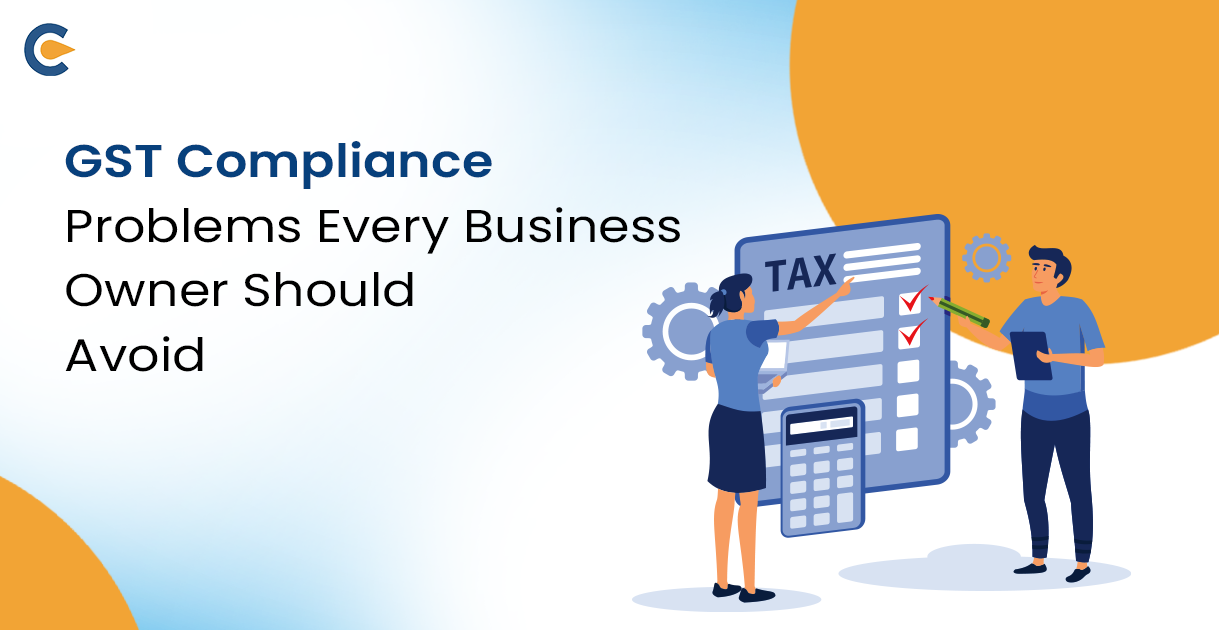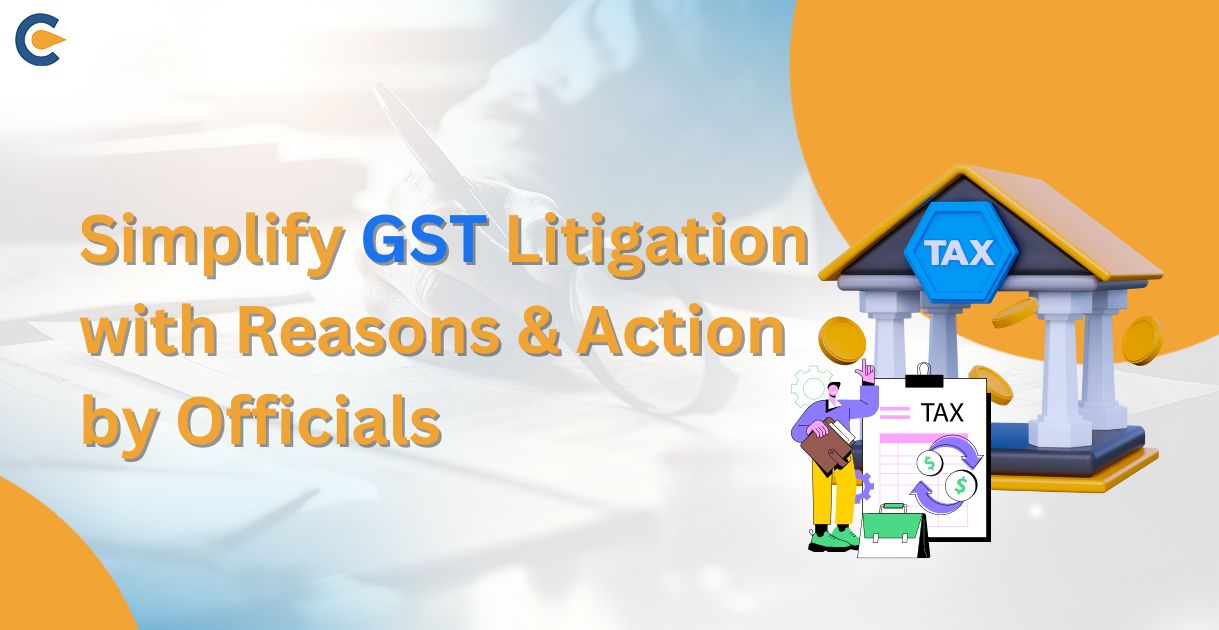It is important to comply with the goods and services tax (GST) to operating a business in India. Every value addition is subject to a multi-stage tax, which is paid for by the final customer. Businesses must prioritize GST compliance since non-compliance can result in significant penalties and fines. To guarantee they continue to be in compliance with the law, companies must keep up with the most recent GST laws and regulations. Monthly, quarterly, and yearly returns are among the frequent reports that businesses registered for GST are required to file. Businesses must make sure they file their taxes on time in order to avoid fines, and these returns must be done online.
The maximum retail price is reflected by applying GST to the final market price of products and services that are internally manufactured. When purchasing products or services, customers must pay this tax, which is included in the whole cost. Once the vendor receives it, it must be paid to the government, indicating the indirect incidence.
Types of GST
Depending on the kind of transaction, there are four types of GST. A firm must evaluate the following table on the GST Components before determining its GST due. There are mainly four types of GST in India:
| Type of GST | Description |
| SGST | The sales tax that is due in a state on goods and services is known as the SGST. Value Added Tax, Entry Tax, State Sales Tax, Entertainment Tax, surcharges, and cess are all replaced by this new tax. |
| CGST | CGST is the tax imposed on the supply of goods within a state. This levy is levied by the central government. Many of the centre’s levies, such as Service Tax, Central Excise Duty, CST, SAD, Customs Duty, etc., were replaced by the CGST. |
| UGST | Taxes are imposed on goods and services sold in Union Territories, including Daman and Diu, Chandigarh Dadra, and Andaman & Nicobar. |
| IGST | Taxation results from the sale of goods and services over state lines. It’s IGST here. Essentially, companies must pay this type of GST when they move goods and services from one state to another. |
GST Compliance Problems
Many business owners face many GST compliance problems, which are to be avoided in order to have a successful business.
1. GSTIN Notifications Handling
One of the biggest GST compliance problems company owners make with regard to GST is processing notices from the GSTIN in an unorganized manner. To guarantee prompt answers and compliance, you must monitor notifications and establish an integrated data record for internal audit in GST.
2. Errors in Manual Processes
The next GST compliance problems are errors in the manual processes. Any significant or minor inaccuracies in the information provided result in mistakes and fines under the GST compliance rules. Considering this, data entry mistakes are bound to occur throughout the manual procedure of completing a GST return. Any such mistake carries the danger of fines and non-compliance, which can have an adverse effect on finances or operations. Automating processes with dependable cloud-based GST software greatly decreases these human errors. It will assist you in utilizing automation for the complete GST procedure, not just data entry. Hence, avoiding GST compliance problems is necessary.
3. GST-Ignorant Suppliers
Another GST compliance problem that is faced is the ignorant supplier. Relying on non-compliant providers might result in disruptions to your organization and is a common error in B2B GST compliance. You must follow up with vendors in a methodical manner, keep tabs on them, and withhold payment until they guarantee GST compliance. It is crucial to avoid this GST compliance problem.
4. Penalties for Late Filing Returns
Penalties are one of the most GST compliance problems. Whether it’s a penalty for GSTR-1 or GSTR-3B late filing, there can be significant fines and interest associated with filing GST returns after the deadline. Usually, it is the result of haphazard monitoring and tracking procedures for submitting deadlines.
Return filing reminders are necessary for company owners to guarantee timely submission prior to deadlines in order to prevent this. Furthermore, you have to contract with experts who specialize in automating compliance and guaranteeing accuracy to handle the filing of your GST returns.
5. Incorrectly Awarded ITC
An important worry is incorrect ITC (Input Tax Credit) claims, which can lead to errors in GSTR-1 and GSTR-3B filings. It is among the most frequently encountered issues while submitting GST returns. Errors of this kind can be avoided by using GST reconciliation sheets to support well-organized ITC monitoring and reconciliation. So, business owners should avoid GST compliance problems in order to have a successful business.
Best Practices to Avoid GST Compliance Problems
The best practices to avoid GST compliance problems is to Adopt fundamental procedures that guarantee compliance, operational effectiveness, and strategic financial management is crucial for retailers. The following crucial procedures can help in avoiding GST compliance problems:
Strategic Compliance Calendar: It is essential to set up a proactive compliance calendar. This entails putting out a methodical filing plan, carrying out internal audits, and making sure that GST laws are followed. Effective and error-free compliance is based on having a well-organized compliance schedule. It will be helpful in avoiding GST compliance problems.
Ongoing Staff Training: Ongoing staff training is crucial, considering the dynamic nature of GST. A well- educated workforce is ensured by keeping staff members informed on recent developments, regulatory needs, and industry best practices. Staff training will reduce mistakes made by humans and avoid GST compliance problems. One smart investment in keeping a competent and flexible team is staff training.
Technology Integration: Technology integration is very crucial in avoiding GST compliance problems. It’s imperative that technology be integrated seamlessly. To simplify operations and enable GST compliance, this includes sophisticated point-of-sale systems, inventory management tools, and accounting software. Adopting technology is essential for effective corporate operations as well as modernization endeavours.
Strategic Management of Input Tax Credits: Retailers should create plans to maximize input tax credits and ensure that they lower total costs while also maximizing advantages. This is known as strategic input tax credit management. A proactive strategy for improving financial sustainability is strategic ITC management. It is essential to avoid GST compliance problems.
Adaptability to Regulatory Changes: Retailers ought to encourage their staff members’ capacity to adjust to changes in regulations. Efficient compliance may be achieved by being abreast of law developments, comprehending the ramifications, and promptly modifying internal procedures. In order to prevent GST compliance problems, adaptability is vital. The secret to prospering in a changing regulatory environment is adaptability.
Initiatives for Customer Education: It’s a good idea to inform clients about the consequences of the Goods and Services Tax. Consumer trust and understanding are fostered by open and honest communication about how GST impacts prices and the whole shopping experience. Initiatives for customer education are a proactive step in developing a base of knowledgeable and devoted customers.
Sturdy Record-Keeping Systems: The key to successful GST compliance is keeping correct records. Strong record-keeping procedures should be put in place by retailers in order to monitor invoices, transactions, and other vital financial information. This approach is the foundation of transparent and error-free financial reporting.
Frequent Tax Planning Meetings: For merchants, regular tax planning meetings are essential. A proactive approach is ensured by working with tax specialists to develop input tax credit optimization, tax planning, and overall financial planning. These tax preparation workshops give merchants a road map for negotiating the intricate tax code.
Participation in Industry Forums: Retailers may get important insights by actively participating in industry forums and associations. Keeping up with industry trends, networking with colleagues, and exchanging experiences all help make well-informed decisions. Keeping up with market developments through collaboration is achieved through industry participation.
Working Together with Tax Experts: Getting together with tax experts is a wise strategic choice. Experts in taxes may offer customized guidance, guaranteeing merchants make well-informed choices, particularly in intricate situations. Decision-making is improved by this collaboration by utilizing expert knowledge.
GST Registration with Corpbiz
With Corpbiz, you can very easily prevent GST compliance problems. It is important for the business to avoid GST compliance problems, as it can hamper the business image. With our GST experts, you can very easily overcome these GST compliance problems. We assist businesses in GST registration and other related services.
Frequently Asked Questions
- What are the GST compliances?
The guidelines that govern how we must keep our records up to date, submit invoices, report sales and purchases, and, in the end, pay taxes and file returns have been established by the GST Council. To put it simply, GST compliance is the act of adhering to certain laws and regulations.
- Why small businesses fails to keep up with GST compliance?
Small firms find it challenging to comply with GST since they have fewer resources (money, time, and staff). The greatest option for firms is most likely to use GST filing service providers, even if the government is working to make it simpler.
- Is GST return filing difficult?
The foundation of India's tax system is the Goods and Services Tax (GST), which makes it easier for businesses to pay taxes. Even the most seasoned experts can make expensive blunders throughout the filing process since navigating the GST environment can be difficult.
- What does RCM mean in GST?
Under the “Reverse Charge Mechanism,” the recipient of the goods or services, not the supplier, is responsible for paying and depositing the GST with the government. The recipient of goods or services pays the provider GST according to the standard process for levying GST, and the supplier subsequently deposits GST with the government.
- What are the four types of GST?
In India, the Goods and Services Tax (GST) is divided into four categories: Union Territory Goods and Services Tax (UTGST), Central Goods and Services Tax (CGST), State Goods and Services Tax (SGST), and Integrated Goods and Services Tax (IGST). There is a difference in the tax rate under each of them.
- What is GST and TDS compliance?
One method of collecting tax on the amount that the recipient of goods or services must pay is through tax Deducted at Source (TDS), which is based on certain percentages. The government receives income from the taxes it collects. In accordance with CGST Rule 66 and Section 51 of the CGST Act, there is a provision regarding TDS under GST.
- Why is GST compliance important?
For any firm with yearly revenue, GST compliance is crucial. Nevertheless, it is crucial for you to understand that any customer wishing to submit an input claim on their credit for the items they have purchased must list every transaction in which they have paid the sellers' GST.
- Can GST be rejected?
The application will be approved by the authorized official if they are happy with the information you have supplied. However, if you do not submit the application for the GST certificate on time or if you do not supply all the necessary papers, the concerned officer has the authority to reject it.
- Who is eligible for GST?
If you sell items inside the same state and your yearly sales exceed Rs. 20 lakh, you must register for GST. The same holds true for service providers with yearly revenues of Rs. 40 lakh or more in the same state. Additionally, vendors in the same state are required to register for GST.
- Who is liable for the GST audit?
Every registered person whose turnover during the fiscal year exceeds the specified maximum is entitled to a GST audit under section 35(5) of the GST Act. They must have their accounts audited by a chartered accountant or cost accountant and provide a copy of their financial statement.
Read Our Article: GST Compliance Checklist











